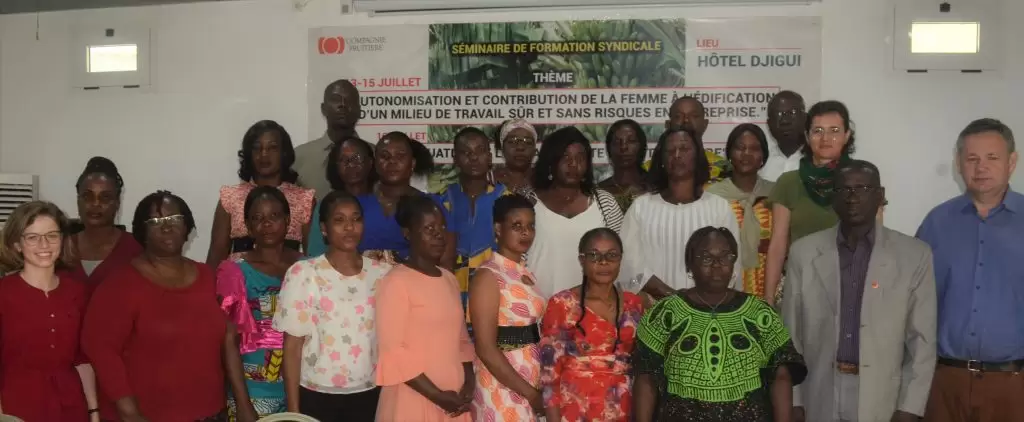Since 2012, the IUF and Banana Link have been successfully coordinating a process of establishing union platforms within the subsidiaries of the Compagnie fruitière in Côte d’Ivoire (SCB) and Cameroon (PHP). The aim of these platforms is to facilitate activities between the unions that have long existed within the company’s plantations. With more than 17,000 workers in banana and pineapple plantations and packing stations in Côte d’Ivoire, Cameroon, Ghana and Ecuador, the IUF has affiliate trade unions in all three African subsidiaries.
At the beginning of 2022, the IUF, Banana Link and the Compagnie fruitière signed a cooperation agreement on the training of workers in the banana and pineapple sectors. Two training courses were held in Côte d’Ivoire between May and July 2022 with more than 20 participants at each event.
The most recent training focused on the empowerment of women workers at SCB. Led by the Chair of the Women Workers Committee (COFET) and President of the SCB platform, this event brought together women workers from SCB who hold different positions in the plantations, some of whom had little or no union experience. The workers started from their own experiences and backgrounds and together:
- They identified inequalities between women and men in the workplace and in society in Côte d’Ivoire as well as ways to empower women
- Through a role-playing game, they spoke freely, denounced situations of sexual harassment, and developed knowledge and tools to assist victims and report cases to their union
- They emphasized the importance of both the collective in defending workers’ rights and the presence of women at all levels of responsibility within the union
- They committed to creating sub-committees of women in the different areas to support the work of COFET
Claudelle Kouadio, President of COFET, stated, “This training and its first results are a great satisfaction for me and proof that we are going in the right direction. This partnership comes at the right time, and I hope it lasts because there are so many women workers to be trained on the plantations, including people who work in very remote areas who do not have access to all this information.”
